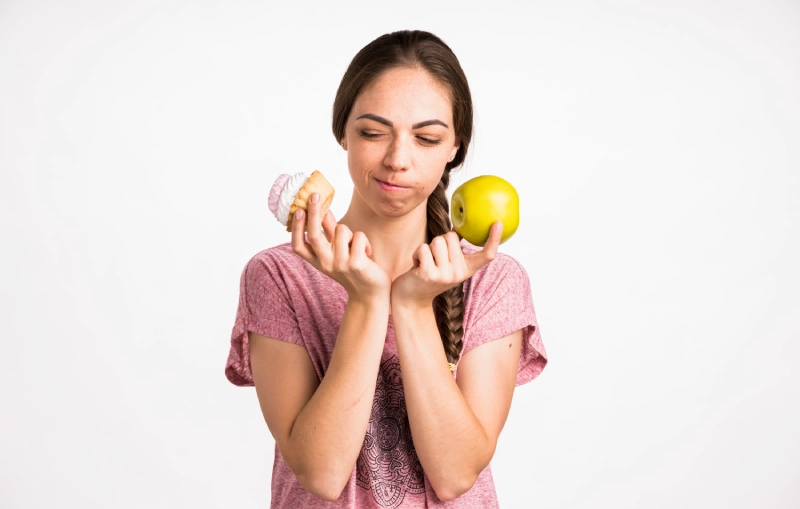Understanding PMS and Its Dietary Impact
Premenstrual Syndrome (PMS) affects millions of women worldwide, causing symptoms such as bloating, mood swings, fatigue, headaches, and cramps. The right diet plays a crucial role in managing these symptoms effectively. By incorporating nutrient-dense foods, women can reduce discomfort and improve their overall well-being. Below, we explore the best foods to eat during PMS and the science behind their benefits.
Best Foods to Eat for PMS Relief
1. Magnesium-Rich Foods for Reducing Cramps
Magnesium helps relax muscles and reduce cramping. Many women with PMS experience low magnesium levels, which can contribute to muscle tension and headaches. Incorporating the following foods can provide relief:
- Dark leafy greens (spinach, kale, Swiss chard)
- Nuts and seeds (almonds, pumpkin seeds, sunflower seeds)
- Bananas
- Dark chocolate (70% cacao or more)
- Avocados
2. Omega-3 Fatty Acids for Inflammation and Mood Stability
Omega-3s have powerful anti-inflammatory properties that help alleviate cramps and reduce mood swings. Sources of omega-3s include:
- Fatty fish (salmon, mackerel, sardines)
- Chia seeds and flaxseeds
- Walnuts
- Algal oil (plant-based alternative for vegans)
3. Iron-Rich Foods to Prevent Fatigue
Iron levels can drop during menstruation, leading to fatigue and weakness. Replenishing iron stores is essential to maintain energy levels. Iron-rich foods include:
- Lean meats (chicken, turkey, beef)
- Lentils and chickpeas
- Tofu and tempeh
- Spinach and kale
- Fortified cereals
4. Complex Carbohydrates for Mood and Energy Balance
Complex carbs help regulate blood sugar levels, preventing mood swings and irritability. The best sources include:
- Quinoa and brown rice
- Whole oats
- Sweet potatoes
- Legumes (black beans, lentils, chickpeas)
- Whole grain bread and pasta
5. Calcium-Rich Foods for Hormonal Balance
Calcium plays a role in regulating mood and reducing PMS symptoms such as anxiety and irritability. The best calcium-rich foods include:
- Dairy products (yogurt, milk, cheese)
- Leafy greens (kale, collard greens, bok choy)
- Fortified plant-based milk (almond, soy, oat milk)
- Sesame seeds and tahini
6. Vitamin B6 for Reducing Bloating and Mood Swings
Vitamin B6 helps in the production of serotonin, the “feel-good” neurotransmitter, reducing depression and irritability during PMS. Foods rich in B6 include:
- Poultry (chicken, turkey)
- Bananas
- Potatoes
- Sunflower seeds
- Fortified cereals
7. Hydrating Foods to Combat Water Retention
Staying hydrated helps reduce bloating and fatigue. Eating water-rich foods enhances hydration levels naturally. These include:
- Cucumber
- Watermelon
- Celery
- Oranges
- Coconut water
Foods to Avoid During PMS
1. Processed and Salty Foods
Excess sodium leads to bloating and water retention. Avoid:
- Packaged snacks (chips, pretzels, processed cheese)
- Fast food
- Canned soups and processed meats
2. Sugary Foods and Drinks
Refined sugars cause blood sugar fluctuations, leading to mood swings and fatigue. Limit:
- Soda and sweetened beverages
- Candy and baked goods
- Processed breakfast cereals
3. Caffeine and Alcohol
Caffeine can increase anxiety and breast tenderness, while alcohol may worsen mood swings and dehydration. Reduce:
- Coffee and energy drinks
- Alcoholic beverages
The Best Herbal Teas for PMS Relief
1. Chamomile Tea – Relieves stress, bloating, and cramping.
2. Ginger Tea – Reduces nausea and inflammation.
3. Peppermint Tea – Alleviates bloating and indigestion.
4. Raspberry Leaf Tea – Supports reproductive health and reduces cramping.
Conclusion: Nourish Your Body for a Better PMS Experience
Managing PMS through diet is one of the most effective ways to ease symptoms naturally. By incorporating nutrient-rich foods and avoiding triggers, women can experience fewer discomforts and improved well-being. A balanced diet rich in magnesium, omega-3s, iron, and calcium ensures hormonal stability and energy levels throughout the menstrual cycle.







